- Home
- Catherine Jinks
Eustace Page 4
Eustace Read online
Page 4
So that’s how Mum persuaded Richard and Delora to come down to Hill End for a night. Just one quick phone call and the deed was done. Later, as we walked back to the camping ground, I pointed out the obvious.
‘Mum,’ I said, ‘how could you? Richard’s our friend. He’s a nice person. He’s going to hate us, once he sees what you’ve got him into.’
‘Don’t be silly, Allie. He’ll love Taylor’s Cottage.’
‘Mum! There’s no electricity! The dunny’s in the garden.’
‘It’s not very comfortable, Mrs Gebhardt,’ Michelle agreed, backing me up. ‘I wouldn’t like to stay there myself.’
‘That’s because you girls are pampered television addicts and suburbanites, with no sense of adventure. Besides, Richard’s always happy wherever there’s a ghost. He’ll sleep on a stone floor if it gives him the chance to monitor paranormal activity. He’s not going to mind that Samantha doesn’t have a fridge.’
I looked at Michelle and shrugged. There’s no arguing with Mum, sometimes.
‘I’ve never met Richard,’ Michelle remarked. ‘I’ve heard you talk about him lots of times, but I’ve never met him.’
‘Haven’t you?’ I said.
‘I think he was mostly around when you were trying to get rid of Eglantine,’ Michelle continued, ‘and you weren’t talking about that much, I remember. You were too embarrassed.’
For a few minutes we walked on in silence, our feet crunching on gravel, our torches illuminating distant treetops and ramshackle picket fences. Bushes rustled to our right. A deep, thrumming call sounded to our left.
‘Frogmouth?’ Mum wondered aloud.
‘Maybe it’s a wallaby, or something.’ I cleared my throat. ‘So what do you think of this ghost, Mum? Do you think he’s really real?’
‘Oh, for God’s sake, Allie, not now,’ Mum protested, and I took her point. It was a bit spooky, walking along a chilly country road at night, with no houses in our immediate vicinity and no distant traffic noises to provide a comforting backdrop to the whisper of the breeze and the croaking of unseen creatures. Above us, dark, winged shapes passed overhead, dimly visible against the stars. A sheep cried out in the distance. By the time we reached our tent, we were almost – but not quite – running.
We didn’t talk about Eustace again before going to bed. But I did think about him. I wondered why, if he actually existed, he was still hanging around Taylor’s Cottage now that his mother was gone.
I also wondered how he had died. Burned in a fire? Drowned in a well? If he had died of an illness, he might have breathed his last in the spare room – the room that Richard was supposed to be sleeping in. Poor Richard. I felt so, so sorry for him.
But to be honest with you, I didn’t spend much time sympathising with Richard, or thinking about Eustace. My head was filled with Jesse Gerangelos (as usual). I couldn’t believe that he was sleeping in a tent not twenty metres away. I was disappointed that I had missed seeing him at dinner. And I kept dreaming about what might happen the next day, when I would be wandering around Hill End in his company.
Pathetic, isn’t it?
CHAPTER # four
In case you ever decide to go camping, let me give you this advice: don’t. Sleeping in a tent is no fun – especially when you’re sleeping with my mother. (She makes funny snuffling noises.) Your face also gets very cold where it sticks out of the sleeping bag, and the birds always wake you up at the crack of dawn. I was awake at half past five, on Saturday morning. I couldn’t believe it when I looked at my watch. And by the time I’d walked to the toilets and back, through the icy, dewy grass, I hadn’t a chance of getting to sleep again. I was well and truly conscious.
So I dug out a box of Special K, and sat eating it dry while the sun rose. I was hoping that Jesse might be the next one to roll out of bed – that we might find ourselves eating breakfast together, without anyone else around. But of course I wasn’t that lucky. The second person to wake up was Angus’s dad, who immediately retreated into the shower block. Then Tammy appeared, and scurried off to visit the toilets. Then Peter crawled out of his tiny tent, and staggered over to where I was sitting. His brown hair was standing up all over his head.
‘It’s freezing,’ he mumbled, wiping his nose on his wrist.
‘Yes,’ I replied.
‘What are you eating?’
‘Breakfast.’
‘How was your dinner last night?’
‘Okay.’
There was a brief silence. (I didn’t want to talk about Eustace, because I’d copped enough heat at school over Eglantine.) After a few minutes Peter seemed to snap out of his trance; he turned on his heel and vanished. When I next saw him, he was washed and brushed and feeling better. That was at about nine o’clock; we were all milling around waiting for the bus to arrive, having eaten our breakfasts, brushed our teeth and packed our bags. Some of us – myself included – had even washed a few dishes.
Most of the adults, I might add, were looking like death, because no one had been able to light a fire to boil water to make coffee. Even Mrs Patel seemed a bit dazed.
‘This is Jesse’s chance,’ Peter observed. He had attached himself to me, as usual, and was gazing over to where Jesse and Malcolm were fooling around with a long piece of rubber tyre, which they were cracking like a whip. ‘He should make a break for it now, while the grown-ups are still suffering from coffee withdrawal symptoms. They’ll never be able to catch him.’
‘Don’t be stupid,’ I said.
‘Did anyone see where Jesse got to last night?’ Peter went on. ‘Did he make it to the pub, do you think? He got up pretty late this morning. Did anyone smell alcohol on his breath?’
‘No one with a hangover would be whipping a piece of tyre around like that,’ I retorted. ‘They’d be groaning and moaning and complaining about their headache. That’s what Mum always does when she has a hangover.’
‘True. That’s true.’ Peter folded his arms. ‘I wonder where he got the tyre from? I wonder whose tyres he’s been slashing? Maybe that’s what he was doing last night – vandalising cars.’
‘Oh, stop it,’ I said crossly. I didn’t like to hear anyone abusing Jesse. Nor did I wish to be persuaded that Jesse might have been making mischief. ‘Look – here’s the bus. It’s about time.’
‘So old Jess couldn’t have been out slashing the bus’s tyres, last night,’ Peter murmured, but I ignored him. I climbed onto the bus and sat next to Michelle, who wasn’t her usual well-groomed, glossy-haired self. She and I moaned about camping all the way to the graveyard at Tambaroora. She said that she had spent a dreadful night.
‘All those insects flying around,’ she complained. ‘And my hair got caught in the zipper.’
‘And it was so cold,’ I added.
‘Cold! Yes! And the birds . . .’
‘Oh, my God. Don’t talk to me about the birds. Weren’t they loud?’
‘You two sound like a pair of little old ladies,’ my mum interrupted, from the seat behind us. ‘It was a glorious night. It was beautiful.’ This, mind you, from a woman whose eyes were all puffy and whose hands were trembling.
‘It was awful,’ I said stubbornly. ‘I know you’ve got a headache, Mum – don’t try and pretend you haven’t.’
‘That wasn’t because I slept in a tent,’ Mum rejoined. ‘That was because I drank too much red wine last night. I always react badly to red wine.’
‘Oh, yes!’ said Mrs Patel, who was sitting beside her. ‘How was your dinner party? Enjoyable?’
‘Oh, it was marvellous! You should have seen the cottage, it was living history, no phone, no electricity, oil lamps, the most wonderful furniture, flour bags tacked over the walls, the most spectacular cottage garden . . .’
Michelle and I rolled our eyes. But Mum didn’t have a chance to rave for long, because pretty soon we turned off Tambaroora Road and bumped up to the gate of the cemetery. The bus slowed. The engine died. Every nose was pressed against the window glass.
‘Cool!’ said Tony, from the back seat.
‘We’re not going to be here long,’ Mrs Patel warned. ‘No more than half an hour. So I want you to get stuck into those questions as quick as you can, please.’
‘Mrs Patel?’
‘What is it, Zoe?’
‘I have to go to the toilet.’
Groan.
‘Well, you’re not doing it on consecrated ground,’ Mrs Patel snapped. ‘Everybody out, please. Hurry up. We haven’t got all day.’
The Hill End and Tambaroora cemetery was a small, flat clearing hacked out of the bush. There was a bit of brick wall by the entrance, where the iron gates were painted white; elsewhere the fence around the cemetery was made of wire and wood. Inside the fence, headstones were scattered about in no particular order. Some were ringed by rusty wrought-iron grilles; some had fallen over; some had been placed there quite recently, and were made of polished granite. No trees were shading the graves, though I could see a few stumps where trees had been chopped down. The grass was coarse and spiky between large patches of brick-hard dirt. I noticed some animal droppings, but I couldn’t identify what kind. Sheep droppings, perhaps? Kangaroo pellets?
‘Infant mortality was very high during the Gold Rush era,’ I read aloud, peering at my project sheet. ‘Of 129 recorded deaths in Hill End during 1872, no fewer than 74 were those of children. Bronchitis, whooping cough, enteritis, scarlet fever and typhoid fever claimed many victims. How many children’s graves can you find in the cemetery, and when did they die?’
‘Cheery,’ muttered Michelle. ‘Well – here’s one. Harold John Egbert, beloved son of Caldwell and Fanny Howard, died November 11th, 1887, aged two years. He is gone but the flowers that are brightest/ Are culled for the bouquet on high/ And hearts that are purest and lightest/ Are singled to blossom and die.’
‘Oh, dear,’ said Mum, and her voice cracked. ‘Oh, dear, how sad.’
Michelle and I moved away from her. We began to trudge along purposefully between the headstones, avoiding the hummocks that looked as if they might be unmarked graves. The air was heating up. Beyond the babble of voices, in the watching bush, I sensed an immense and stifling silence.
Glancing over my shoulder, I tracked Jesse down; he was trying to climb the fence around one of the graves. Even as I wondered why a smart boy should feel the urge to do such a thing, I found myself admiring the easy way he swung himself over the wrought-iron spikes. I had to admit, he’s quite athletic.
‘Jesse Gerangelos!’ Mrs Patel shouted. ‘Get out of there right now!’
‘I wonder if Eustace is buried around here?’ Michelle remarked. ‘Do you think?’
‘Could be.’
‘What was his last name?’
‘Harrow.’
‘Here’s another one. Sacred to the memory of Caroline Henriette Sophie, the beloved daughter of H.C. and Emilie Fischer, who departed this life October 21st AD 1866, aged 11 years, three months and five days. Gee,’ said Michelle, with a shudder. ‘That’s only a few months younger than me.’
‘Look,’ I said, and stopped. ‘Here’s a bunch of Harrows on this stone. Margaret, Thomas, Abel, John and . . . let’s see . . . Georgina. No Eustace.’
‘It’s the wrong date, anyway,’ Michelle pointed out. ‘The last death shown here happened over a hundred years ago. He can’t have died more than eighty-three years ago.’
‘Who can’t have?’ a voice inquired. It was Peter Cresciani, sneaking up on us again.
‘No one,’ I said shortly.
‘Did you see the grave over there?’ he continued. ‘It belongs to an eight-year-old girl called Frances Deadman. What a great name to have on a gravestone, eh?’
‘When did she die?’ Michelle asked, and Peter checked his notes.
‘March 23rd, 1861,’ he declared.
‘Thanks,’ said Michelle, and scribbled this information down. From the other side of the cemetery, someone – probably Malcolm Morling – began to make ghostly ‘ooooing’ noises.
‘I wondered how long it would take him to do that,’ Peter remarked in pensive tones, squinting across the gravestones towards Jesse’s gang. It gave me an excuse to do the same. But then I caught Jesse’s eye, and glanced away quickly.
‘Hey, look,’ I said. ‘Here are the Ellis graves. There he is – Red Jack Ellis. Died September 24th, 1999, aged eighty-four.’
‘And here’s another kid,’ Peter offered. ‘Eustace Harrow, three years – oh no. Hang on. That’s too –’
‘Where?’ I gasped. ‘Where is it?’
‘Here.’ Peter pointed. ‘But it’s not from the Gold Rush era. This kid died in 1948.’
I jostled him while Michelle jostled me; we were both desperate to look at the gravestone. It wasn’t very big. It was made of greyish marble, with inlaid letters forged out of lead. A few of the letters were missing.
‘Sacred to the memory of Eustace Harrow, died 2 April 1948, aged three years,’ Michelle murmured. ‘It must be him.’
‘It must be who?’ asked Peter, and I said: ‘No one.’ I had noticed that the gravestone beside Eustace’s belonged to his mother, Evie (died 6 September 2001, aged eighty-three). Her gravestone was new and glossy, made of black granite, and there were fresh flowers standing in a glass jar right in front of it. Her son’s grave, on the other hand, was grubby and weathered. Such a contrast, I thought, was very, very sad. It made me realise how long they had been apart.
No wonder the poor kid was still hanging around – if that’s what he was doing. He had been much too little to leave his mum.
Then it occurred to me: wouldn’t they have been reunited the minute Evie died?
‘Come on,’ said Peter. ‘We’ve got to finish this. Can anyone see any other kids?’
In the end, we collected a lot of kids’ names: Duncan Islay, aged ten years; Elizabeth Ann Gillard, aged thirteen months; Edgar Paten, aged six weeks; Louis and Albert Hodge, aged one month and three years respectively. After a while, this long list began to depress me even more than Eustace’s gravestone. There seemed to be so many dead kids, stuck out in the middle of the bush. Some of the fenced graves began to look like cots, overgrown with weeds.
I was glad when Mrs Patel summoned us back to the bus.
‘Okay – now we’re going to visit Golden Gully,’ she said, lurching as the bus hit a rut (or a root) in the sun-baked surface of the car park. ‘A lot of the old mining activity took place in this area along Tambaroora Creek. What the miners didn’t dig up, erosion has exposed since then. You’ll see a lot of evidence of the old shafts, but I want you to be very careful, because it’s a dangerous area. The ground’s highly unstable. I don’t want anyone going into any of those tunnels, is that clear?’
I wondered why she was even putting the idea into Malcolm Morling’s head. Michelle said to me: ‘Didn’t that National Parks woman mention Golden Gully?’
‘That’s right.’ (I pretended to stretch so that I could glance towards the back seat. Jesse was flirting with Amy again.) ‘When she was talking about some guy . . .’
‘The feral.’
‘The fossicker.’
‘I wonder if we’ll see him today?’
‘See who?’ asked Peter, who was sitting behind us. ‘What feral?’
‘Oh, some old bloke who’s still panning for gold,’ I replied. ‘No one special.’
‘Is he on the project sheet?’
‘Of course not.’
‘Then he doesn’t matter. Nothing matters unless it’s on the project sheet.’ As Michelle and I laughed at this, Peter leaned forward. ‘How come you guys know all this stuff? Where do you get it from? Why do I feel like you’ve got crib notes, or something?’
‘It’s called the project sheet of life, Peter,’ I joked, and then we arrived at Golden Gully.
Steve had to park on Tambaroora Road, where he settled down with a newspaper and a cigarette. There was a steep path leading from the dusty little parking area to a small clearing. Behind the clearing, several t
all, thin, shaggy eucalypts, as white as bone, framed a low archway that had been weathered into a hillside.
‘Right,’ said Mrs Patel. ‘Gather round, everyone. Tony – come here, please. Golden Gully was what made Tambaroora gold field the biggest attraction in New South Wales in 1852. Originally, it wasn’t this deep. What you see now is the result of the earth being riddled with mines, then left to erode. Now, we’ve already talked about the presence of quartz rock, and how important it is if you’re looking for gold. We’ve also talked about “wash”, or gold-bearing gravel. What I want you to do now is divide yourselves into groups, and I’ll give you fifteen minutes to go and look for a piece of quartz, a handful of “wash”, and one of the circular shafts dug by the Chinese miners. On your project sheet, you’ll see that the Chinese miners wouldn’t dig oblong shafts because they believed that evil spirits lurked in corners. What is it, Jesse?’
‘Please, miss, I think Zoe needs to go to the toilet.’
An explosion of giggles and slaps from the rear of the group. ‘I do not!’ ‘Ow!’ ‘You think you’re so funny!’
Mrs Patel, I was pleased to see, didn’t take the slightest bit of notice.
‘All right,’ she said. ‘We meet back here in fifteen minutes. If anyone’s late, they’re in big trouble. And do not go anywhere near those shafts. Got that? Okay – off you go.’
I glanced around. Mum was locked in a conversation with Tammy’s mother. Angus and Serge were poring over their project sheets. (‘Quartz is a usually colourless transparent crystalline mineral . . .’) Jesse and his mob were already sprinting down the creek bed, hurrying to escape adult supervision.
I could sympathise with their need for space.
‘Come on,’ I muttered to Michelle. ‘Quick, before Mum catches up.’

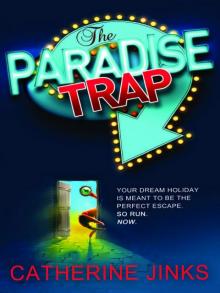 The Paradise Trap
The Paradise Trap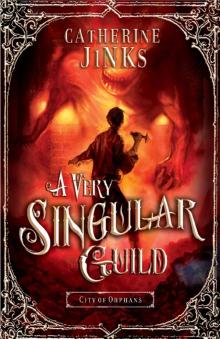 A Very Singular Guild
A Very Singular Guild Eloise
Eloise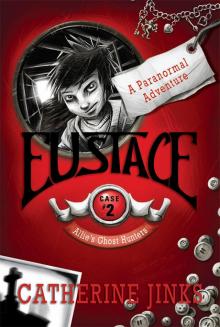 Eustace
Eustace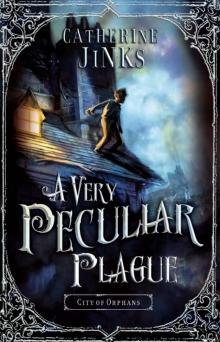 A Very Peculiar Plague
A Very Peculiar Plague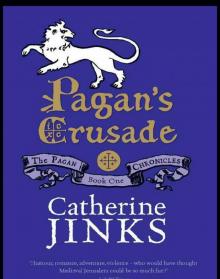 Pagan's Crusade
Pagan's Crusade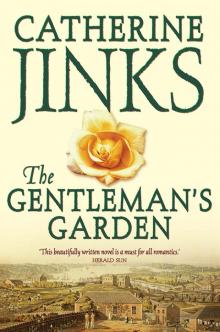 The Gentleman's Garden
The Gentleman's Garden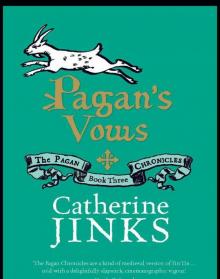 Pagan's Vows
Pagan's Vows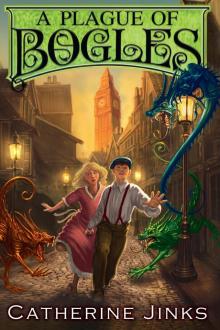 A Plague of Bogles
A Plague of Bogles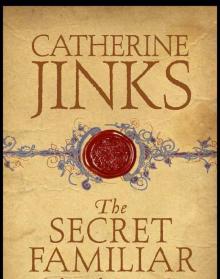 The Secret Familiar
The Secret Familiar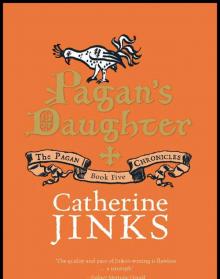 Pagan's Daughter
Pagan's Daughter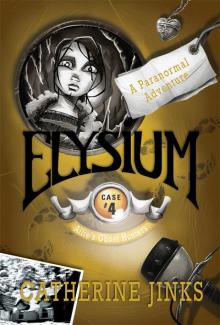 Elysium
Elysium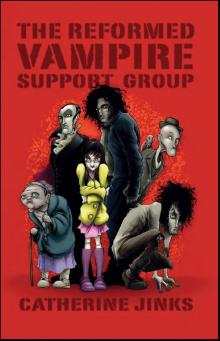 The Reformed Vampire Support Group
The Reformed Vampire Support Group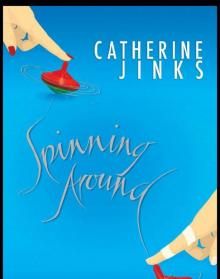 Spinning Around
Spinning Around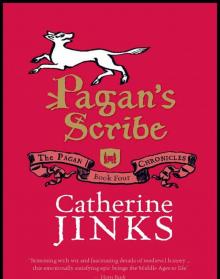 Pagan's Scribe
Pagan's Scribe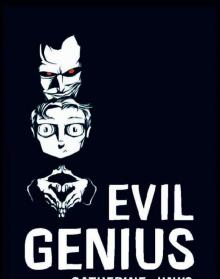 Evil Genius
Evil Genius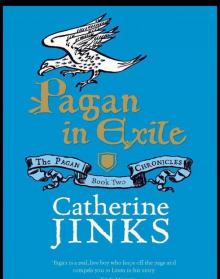 Pagan in Exile
Pagan in Exile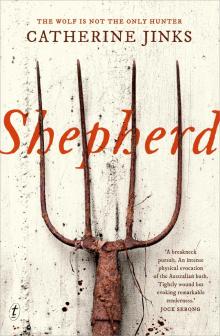 Shepherd
Shepherd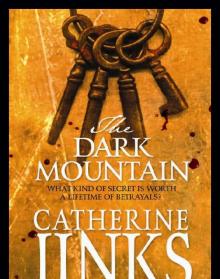 The Dark Mountain
The Dark Mountain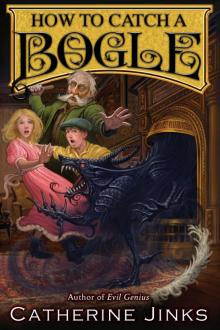 How to Catch a Bogle
How to Catch a Bogle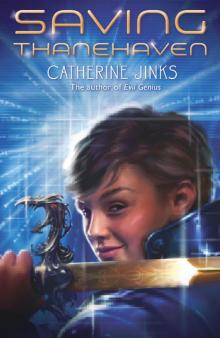 Saving Thanehaven
Saving Thanehaven The Genius Wars
The Genius Wars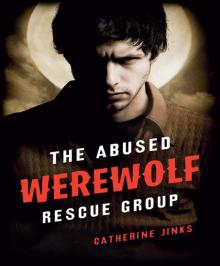 The Abused Werewolf Rescue Group
The Abused Werewolf Rescue Group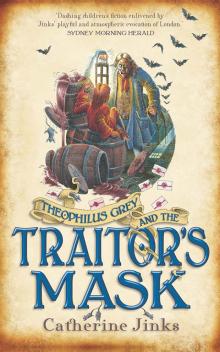 Theophilus Grey and the Traitor's Mask
Theophilus Grey and the Traitor's Mask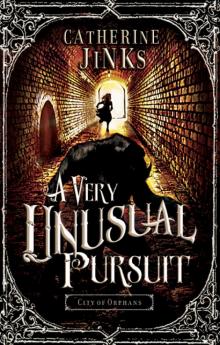 A Very Unusual Pursuit
A Very Unusual Pursuit Genius Squad
Genius Squad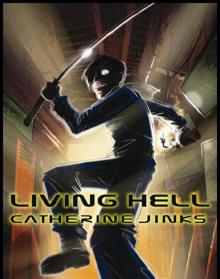 Living Hell
Living Hell The Road
The Road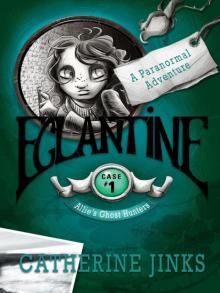 Eglantine
Eglantine